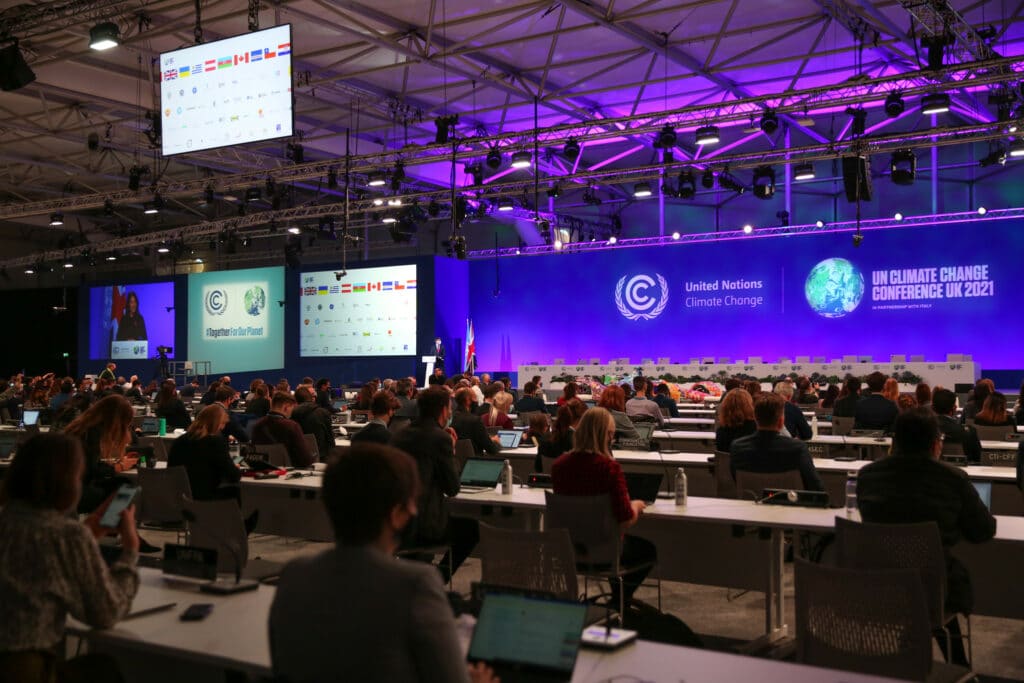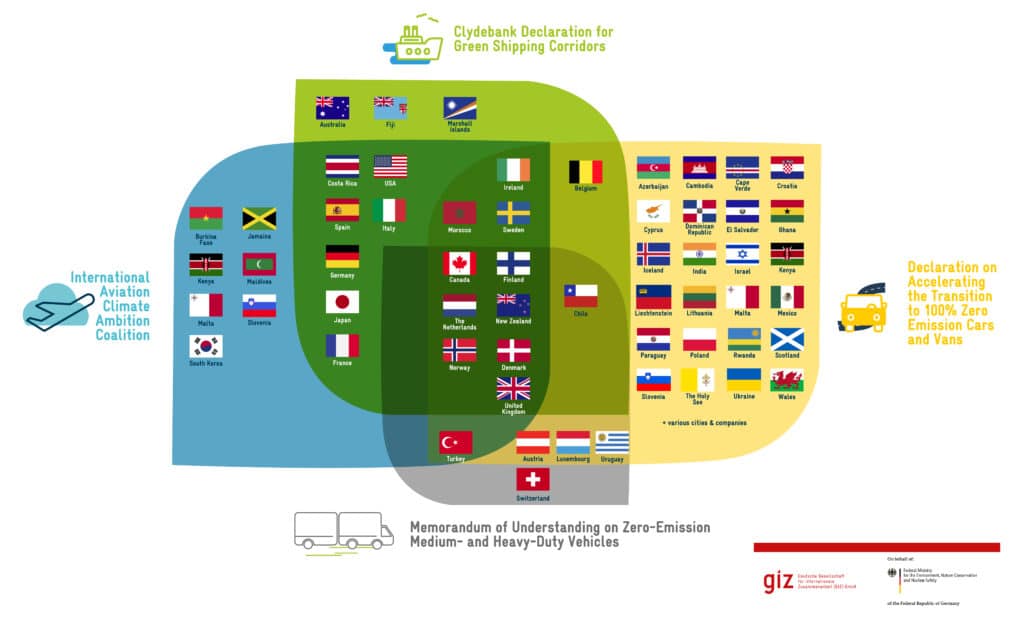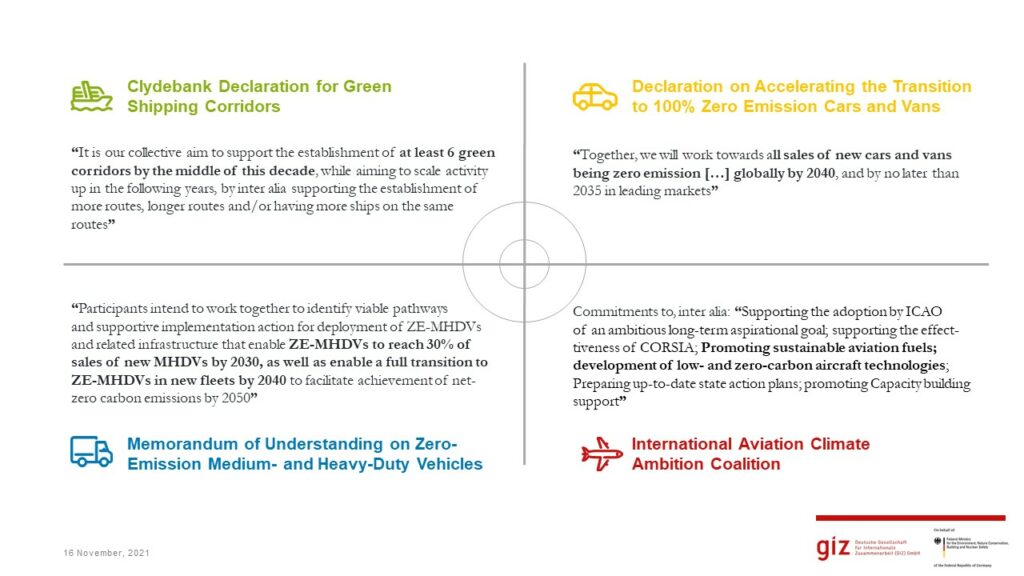
Countries have been gathering in Glasgow to discuss how to achieve what has been agreed in Paris 6 years ago – to limit global warming to 1.5 degrees. After 2 weeks, a total of 29 new international initiatives for enhanced sectoral climate action are listed on the COP26 outcomes webpage of the UK Presidency, ranging from forests to transportation.
These declarations, alliances, clubs and coalitions are employed alongside the traditional multilateral negotiations to boost implementation of the Paris Agreement. They are “partnerships of the willing” rather than an agreement of almost 200 countries. So the initiatives include a smaller number of participants and not necessarily national governments only. Instead of a global goal, they focus on a specific purpose and take the form of voluntary commitments.
At Changing Transport we are always happy to see intensified international cooperation in the transport sector. Hence, we celebrate that among the 29 initiatives are four with a transport focus:
All four initiatives have been launched on the COP’s Transport Day on 10th November 2021. The first three are intergovernmental with only governmental signatories on board. In contrast, the declaration on 100% Zero Emission Cars and Vans is a comprehensive multistakeholder initiative with a long membership list of subnational governments, Companies, NGOs, financial institutions and think tanks.
The governmental membership of each of the four initiatives is shown below, counting a total of 50 countries. The countries are diverse in geography and in their development status and they include fourteen G20 members. Laudable are six champion countries who have joined each initiative, namely Canada, Finland, Netherlands, New Zealand, Norway and the UK.

Diverse is also the thematic scope of the four initiatives, covering road, air and maritime transport as well as passenger and freight vehicles. Nevertheless, observers have noted gaps with these initiatives and with the transport decarbonization discourse at COP26. They call for more conversation and initiatives on walking and cycling, on actions to avoid and shift transport. We agree, zero emission vehicles are necessary but not sufficient for achieving sustainable mobility.
Now starts the time for the new initiatives to deliver on their ambitious objectives (see below). We hope for the best and will support where we can.

 © UNclimatechange
© UNclimatechange